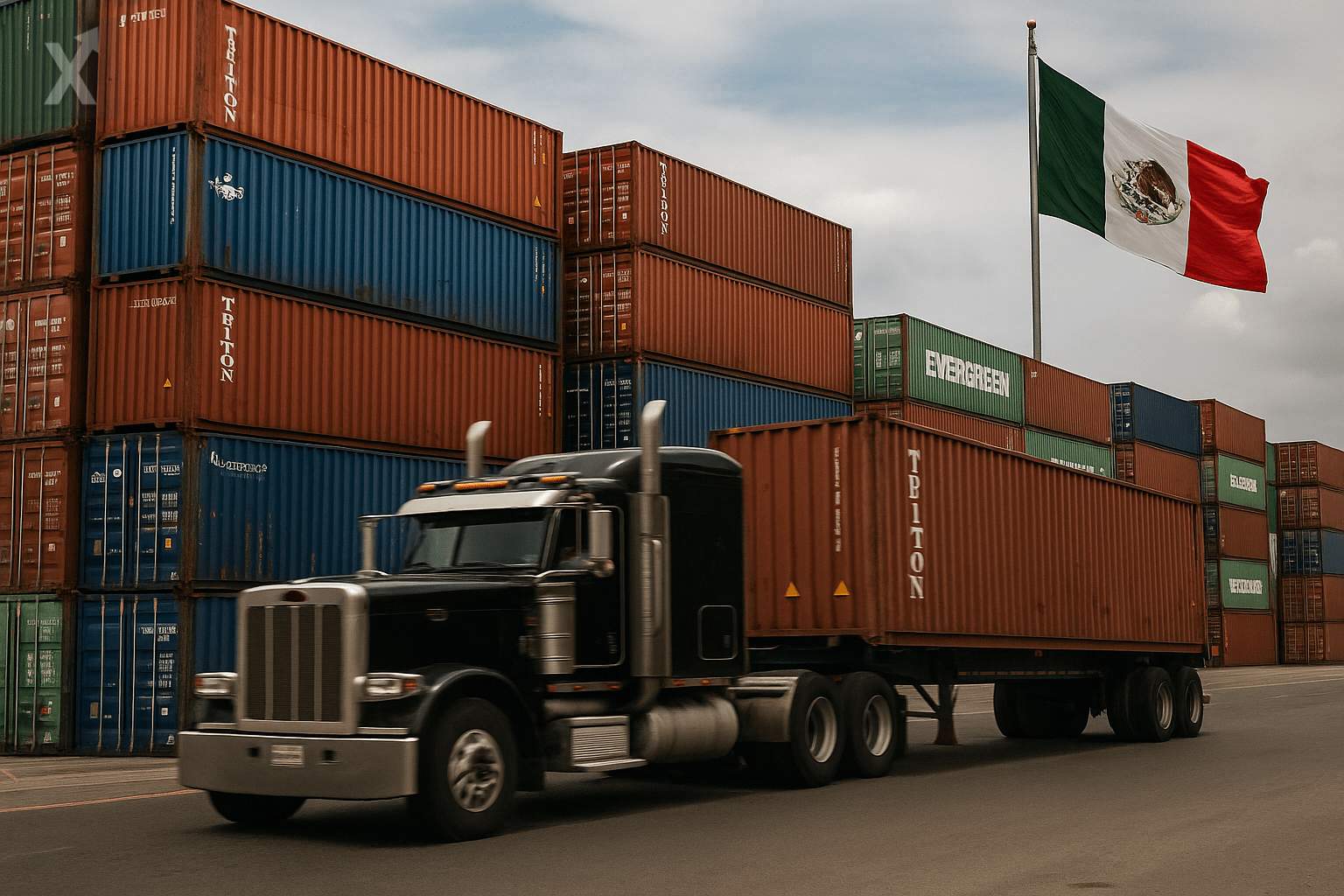International Trade Tensions: Implications for the Mexican Economy

Former U.S. President Donald Trump's recent statements regarding the difficult trade negotiations with Japan and the lack of a "fair" agreement with the European Union highlight the current complexity of the global trade environment. While the focus of these remarks is primarily on the relationships between the United States, Europe, and Asia, the underlying issues have a significant impact on emerging economies like Mexico, whose integration into international value chains makes it vulnerable to any changes in global trade dynamics.
At the latest G7 summit, Trump reiterated the possibility of imposing tariffs on pharmaceutical products and warned of potential increases in reciprocal tariffs with the European Union if satisfactory agreements for the United States are not reached before the set deadline. At the same time, he spoke about Japan's tough stance in negotiations and suggested that the U.S. administration could choose to dictate trade terms unilaterally—an approach that adds uncertainty to the international outlook.
Mexico, as a country highly dependent on foreign trade—particularly with the United States—is closely following these tensions. Any hardening of positions among the world's major economies, especially regarding the imposition of tariffs, can trigger adjustments in supply chains, shifts in investment, and volatility in financial markets—situations that have both direct and indirect effects on the Mexican economy.
In recent years, Mexico has remained one of the United States' main trading partners, especially since the implementation of the United States-Mexico-Canada Agreement (USMCA). However, abrupt changes in U.S. trade policy, such as sectoral tariffs or new regulations, have shown their potential to affect the flow of Mexican exports, the dynamism of national manufacturing, and investor confidence.
A possible rise in global protectionism could also push Mexico to seek greater market diversification, focusing on strengthening trade relations with Europe, Asia, and Latin America. In addition, export-oriented industries will need to adjust their strategies to remain competitive in the face of possible distortions in international trade.
In conclusion, the escalation of trade tensions between the United States and its main global partners serves as a warning sign for the Mexican economy, which, given its high level of external dependence, must anticipate changing scenarios and proactively adapt to new conditions. The country's stability and growth will largely depend on its ability to respond to these challenges and to consolidate its own agenda for diversification and commercial modernization.





